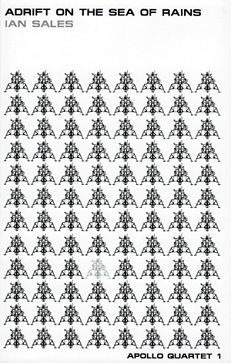Even to this day I occasionally find myself trying to “similarize”. I stare intently at a piece of the floor, blink to imprint it in my mind, then try to teleport to it. That’s the way van Vogt described it in his Null-A novels which I read as a very impressionable teen. I completely get where Ian Sales is coming from:
There are occasional moments when The Players of Null-A does that that thing which made 1940s and 1950s science fiction so compelling at the time: those wild shifts in scale, where battle fleets comprise hundreds of thousands of warships, and journeys cover thousands of light-years in a single hop. It’s horrendously implausible… but never quite manages to break suspension of disbelief. It’s a technique sf no longer uses, perhaps because these days the genre uses tropes differently, often uncritically, with no real knowledge of their meaning or history. But that’s an argument for another day.
Reading The Players of Null-A, I was bemused at how easily I’d been taken in by van Vogt’s writing as teenager. The two Null-A books, and a later sequel, Null-A Three (1985, Canada), are predicated on general semantics, a quack “behavioural system” proposed by Alfred Korzybski, as was “non-Aristotelian logic”, in the book Science and Sanity: An Introduction to Non-Aristotelian Systems and General Semantics (1933, USA). It’s complete nonsense, a sort of self-help by-your-own-bootstraps perversion of Kant’s “ding an sich” — which is given a far, far better fictional treatment in Adam Roberts’s The Thing Itself (2015, UK).
His writing, like that of other utterly self confident bullshitters like Heinlein, is catnip to a certain type of bookish, smart teenager. He had that trick of taking you the reader in his confidence, flattering you that you were capable of understanding what he was talking about even though it was complete nonsense. A thing like general semantics would’ve come across as obvious crackpottery had you encountered it in any other context. It being used as the premise of a science fiction story actually gave it a certain credibility. There must be something in it if it can be used for science fiction!
It was a different time. I still have the read to pieces Meulenhoff omnibus edition of the Null-A novels my parents gave me for my fourteenth birthday, but I haven’t read them in decades. When you’re fourteen you don’t notice van Vogt is just a terrible writer; it’s the ideas that enthrall you. Nor do you notice how outdated and dumb those ideas are. When you’re reading science fiction for the first time everything is new and exciting, no matter how hoary it really is.
